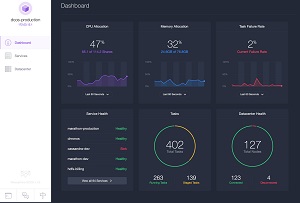News
Mesosphere Puts Datacenter OS Beta on AWS
Mesosphere Inc. is putting its Datacenter Operating System (DCOS) on the cloud as a public beta project.
Mesosphere provides container-focused cluster management software featuring a distributed systems kernel based on the open source Apache Mesos project. It facilitates running containerized workloads at scale on Linux. A key part of its approach is abstracting various datacenter services such as CPU, memory, storage and other compute resources and presenting them as a single pool that can be programmed against.
The company said it seeks to bring the hyperscale technology already used by Web giants such as Twitter, eBay and Netflix to organizations of all sizes.
"The Mesosphere DCOS is a new kind of 0S that organizes all of your machines, VMs, and cloud instances into a single pool of intelligently and dynamically shared resources," the company said.
The DCOS provides automatic provisioning, scaling and failover capabilities to Linux applications built with integrated Big Data technologies such as Hadoop and Spark or container technologies such as Kubernetes, among many others.
 [Click on image for larger view.]
The Mesosphere DCOS Dashboard (source: Mesosphere)
[Click on image for larger view.]
The Mesosphere DCOS Dashboard (source: Mesosphere)
Mesosphere last week announced its public beta program will be hosted on Amazon Web Services Inc. (AWS) and Microsoft Azure.
"DCOS presents the first real attempt to bring the infrastructure secrets of major Web companies to companies of all shapes and sizes," company exec Derrick Harris said in a blog post last week. "At its core is the open source Apache Mesos technology, which acts as an OS kernel for managing an entire datacenter like a single computer. Only instead of including a bunch of custom-built OS services, DCOS has been integrated with all sorts of leading open source projects."
Along with the open source Mesos core, the DCOS features other components, such as Marathon, an init system, Chronos, for running cron jobs, Hadoop Distributed File System (HDFS) for storage and DNS for discovering services.
It can be run via a command-line interface (CLI) that can be used to start and stop services, debug apps and manage clusters. A dashboard provides real-time views into running tasks and resources and a repository provides certified datacenter services that can be easily installed, the company said.
"We're marching fast toward general availability, but in the meantime we want to show off to the world what we've done -- and to start letting the world show us what they can do with it," Harris said, inviting interested parties to sign up for the public beta. "Maybe build the next Twitter, the next high-tech hedge fund or the next Siri. Or, hopefully, do something completely new and awesome."
About the Author
David Ramel is an editor and writer at Converge 360.